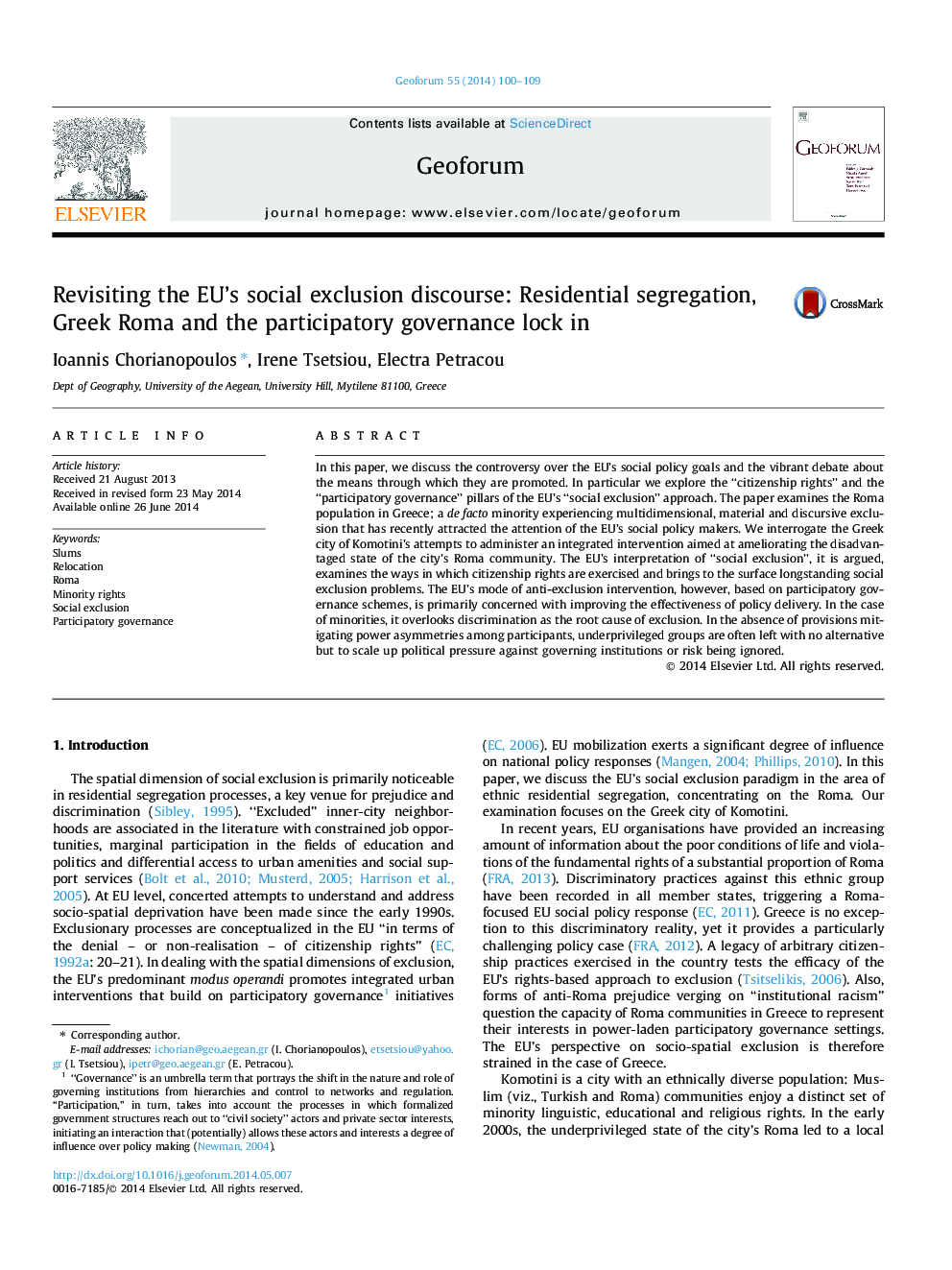| کد مقاله | کد نشریه | سال انتشار | مقاله انگلیسی | نسخه تمام متن |
|---|---|---|---|---|
| 5073880 | 1477134 | 2014 | 10 صفحه PDF | دانلود رایگان |
- 'Citizenship' and 'participatory governance' are the pillars of EU's social policy.
- The EU adopted the 'joined responsibility' approach to Roma communities' problems.
- The Greek Roma population is a de facto minority experiencing multiple deprivation.
- The EU's interpretation of 'citizenship' brings to surface long standing exclusion problems.
- Non-communicative tactics can assert the participatory role of disadvantaged groups.
In this paper, we discuss the controversy over the EU's social policy goals and the vibrant debate about the means through which they are promoted. In particular we explore the “citizenship rights” and the “participatory governance” pillars of the EU's “social exclusion” approach. The paper examines the Roma population in Greece; a de facto minority experiencing multidimensional, material and discursive exclusion that has recently attracted the attention of the EU's social policy makers. We interrogate the Greek city of Komotini's attempts to administer an integrated intervention aimed at ameliorating the disadvantaged state of the city's Roma community. The EU's interpretation of “social exclusion”, it is argued, examines the ways in which citizenship rights are exercised and brings to the surface longstanding social exclusion problems. The EU's mode of anti-exclusion intervention, however, based on participatory governance schemes, is primarily concerned with improving the effectiveness of policy delivery. In the case of minorities, it overlooks discrimination as the root cause of exclusion. In the absence of provisions mitigating power asymmetries among participants, underprivileged groups are often left with no alternative but to scale up political pressure against governing institutions or risk being ignored.
Journal: Geoforum - Volume 55, August 2014, Pages 100-109
